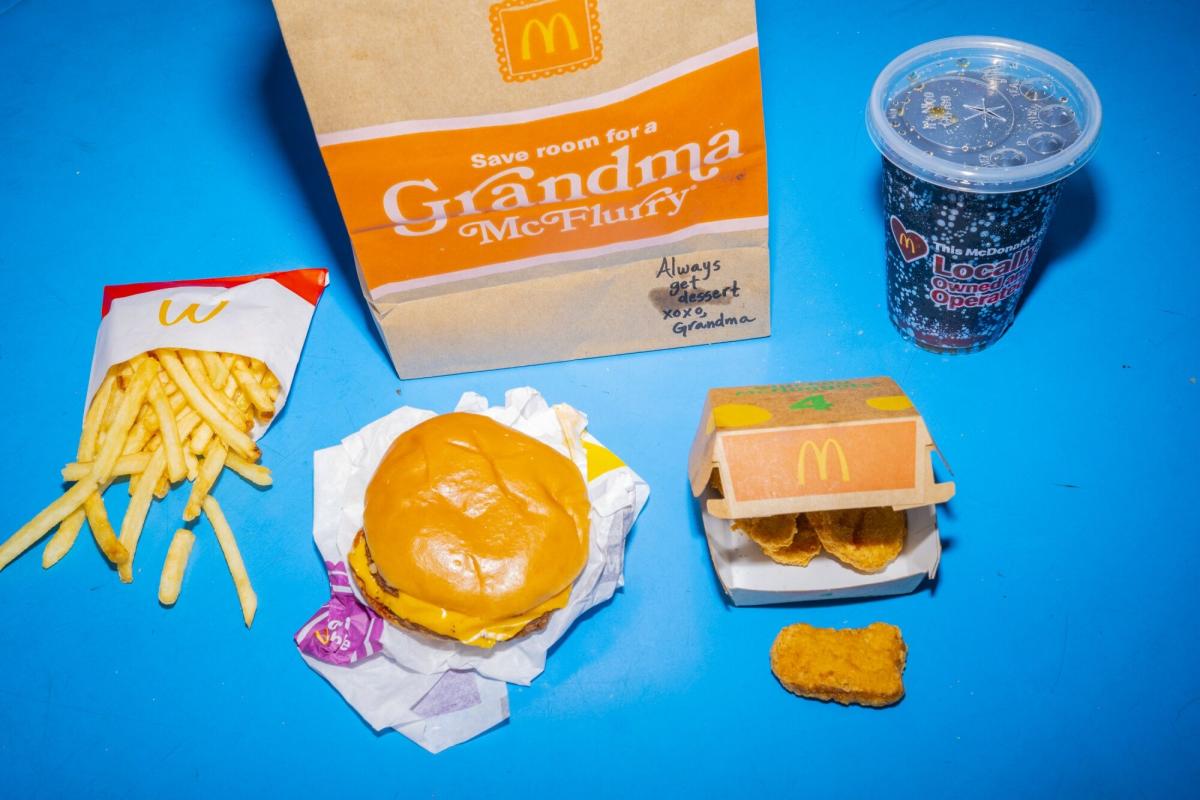McDonald’s intensifies the price war in the fast-food market with a $5 menu

(Bloomberg) — McDonald’s Corp.’s U.S. chief says the company is ready for a fight.
Most read by Bloomberg
And to win, the burger chain is pulling out one of its strongest weapons: its low-cost menu, to lure back stingy customers who have cut back on fast food in recent years after flocking to the Golden Arches.
On June 25, McDonald’s will launch a marketing campaign and a new $5 menu offer, raising the stakes as U.S. restaurants vie to lure back inflation-stricken customers.
“We are determined to win the value war,” said Joe Erlinger, president of McDonald’s in the United States, in an interview with Bloomberg News.
After Bloomberg News reported on McDonald’s plans for the $5 promotion last month, competitors responded with their own offers – and insults.
Burger King’s U.S. president promised to launch the $5 menu “before them,” alluding to McDonald’s in a memo to franchisees. Wendy’s Co. offered a $3 breakfast deal and took to social media to mock competitors for copying its ideas. Even Starbucks, known for its expensive frappuccinos and lattes, announced it would offer a breakfast sandwich with coffee for $6.
When asked about his opponents, Erlinger smiled and said he was not fixated on the competition.
McDonald’s is the nation’s largest restaurant chain by revenue, he said, and the $130 billion company’s size and marketing power give it an advantage over smaller rivals and the ability to reduce any loss in franchise profits. “Think of our size,” he said, noting that the additional cost of adding fries and a drink to a sandwich is minimal. The $5 offering includes a McDouble or McChicken sandwich, small fries, four chicken nuggets and a small soft drink.
Franchisees who run the majority of McDonald’s outlets don’t all agree with that calculation. Many say they would like to have a low-cost menu that draws customers into the outlet, but are concerned that people will switch to more expensive options like the $9 Big Mac meal.
“The profit is simply not high enough to offer a 30% discount and make this model sustainable,” an independent franchisee group told its roughly 1,000 members in a message last month.
The company said a local $5 promotion in upstate New York resonated well with lower-income consumers and drove additional sales among wealthier customers who purchased more than just the $5 menu item.
For McDonald’s, however, the promotion – which runs for four weeks nationwide and longer in markets such as Dallas and Las Vegas – is not just about boosting sales. The nationwide campaign is also designed to dispel the perception that McDonald’s has become too expensive. Images of an $18 Big Mac meal in Connecticut went viral on social media, along with claims that prices have doubled in recent years.
The company’s prices have increased an average of 40% since 2019 to offset rising costs, Erlinger said in a blog post in May. He said the $18 price was an anomaly found at only one of the company’s more than 13,700 locations.
That’s little consolation for customers like Dylan Covington, 33, who lives in Fort Wayne, Indiana, and used to eat at McDonald’s about once a week. Because of the price increases, he now only visits McDonald’s once every two or three months. Instead, he goes to a nearby restaurant where he can get a larger sandwich for about the same price.
“McDonald’s was always the cheap alternative,” Covington said. “Now it’s not even that. I see no reason to go there unless I specifically have a craving for a Big Mac.”
Decline in consumption
While prices rose across the U.S., local McDonald’s offerings simply weren’t enough to lure back customers like Covington. While the economy is still humming and unemployment remains low, real growth in disposable income in the U.S. has stalled. Americans have used up much of their pandemic savings and debt is starting to pile up. Eating out is less common, and for many, even fast-food restaurants are increasingly just a special treat.
McDonald’s competitors were early to expand their discount offers. Arby’s offered a $6 meal in January and White Castle offered a $5 bacon package in April. McDonald’s sales initially held up better than those of its competitors and the company took a wait-and-see approach.
“It seems like they were caught off guard in terms of value,” said Sara Senatore, an analyst at Bank of America.
Erlinger said customers are becoming “more discerning about how their money is being spent.” So the company decided to offer a larger national deal to the franchisees, who own and operate 95% of U.S. stores and have a say in key marketing campaigns. The operators initially opposed the move on the grounds of profit, but eventually relented, encouraged in part by additional funding from Coca-Cola Co.
McDonald’s entices customers who order through the fast-food chain’s app with additional special offers such as free French fries – a key part of the company’s growth strategy. App users order more frequently and are more likely to add drinks, desserts and other extras that add value to bills and increase sales.
The $5 menu promotion is unlikely to provide an immediate solution. The company’s original Dollar Menu was introduced in 2002 and revised several times before settling on a $1 to $3 offering in 2018. While the Value Menu ultimately delivered strong results, it took a while for the initiative to gain traction, CEO Chris Kempczinski told investors in April about the 2018 Value Menu.
Price perception
McDonald’s declined to provide details on promotional plans beyond this summer, although Erlinger said it’s fair to say the promotion isn’t the fast-food chain’s last word on value. “We’re obviously going to remain competitive in terms of value and affordability beyond the $5 menu.” Right now, customers aren’t looking for new products or creative twists on McDonald’s nuggets, burgers or wraps. “They’re asking for value and affordability,” he said.
The competition, for its part, says it is ready to take on the restaurant heavyweights. Patrick Doyle, chairman of Burger King’s parent company Restaurant Brands International Inc., says the increased focus on value could give the entire industry a boost.
“There is a perception that maybe prices have gotten a little too high,” Doyle told investors in mid-June. The value discussion “will hopefully improve the perception of the category in general – make some people more open to a return.”
Most read by Bloomberg Businessweek
©2024 Bloomberg L.P.
Related Posts

The Completely Wrong Way to Use Healing Magic – Voice Actor Cast Confirmed

Save big on the Insta360 X3 waterproof action camera with this early Prime Day deal

